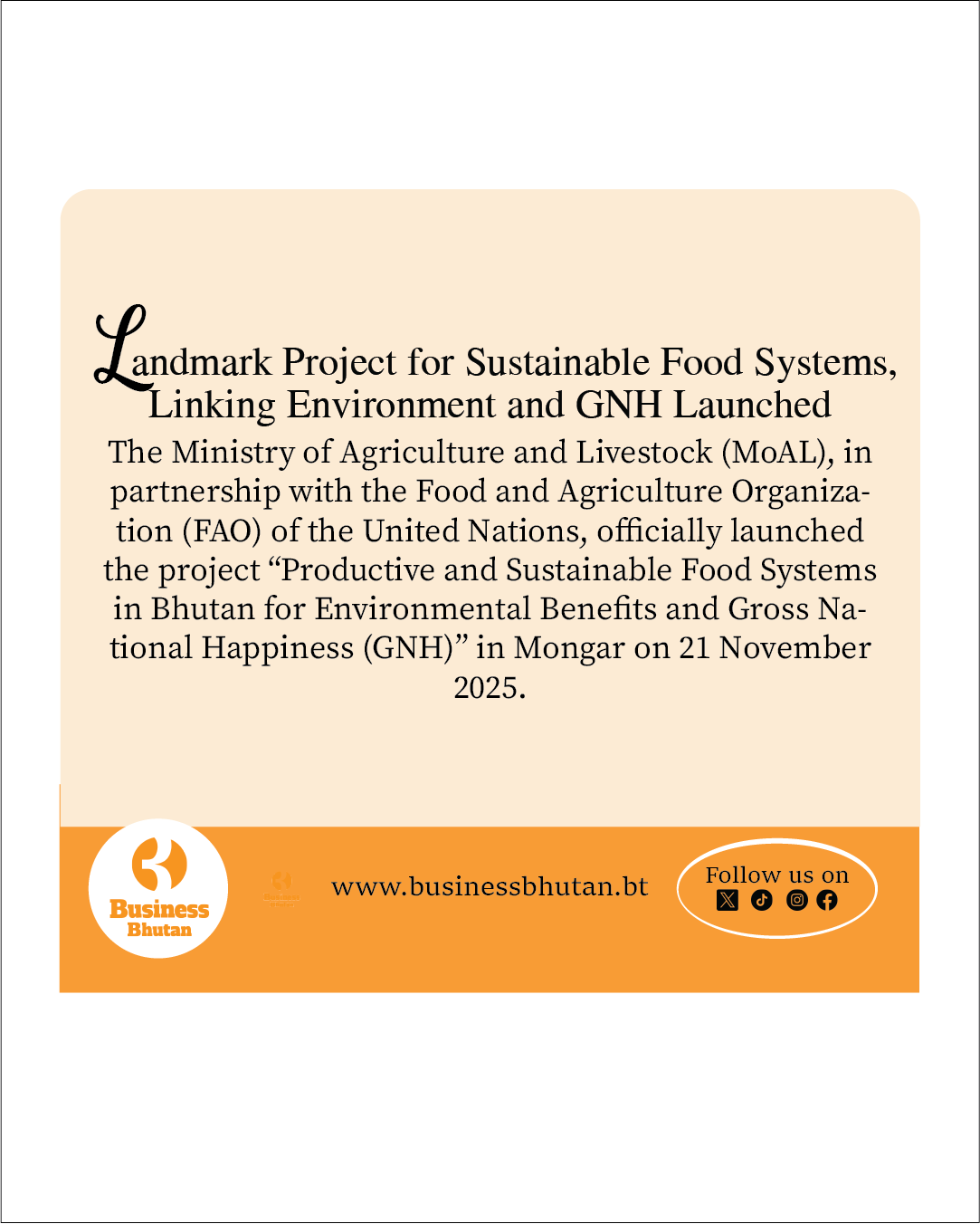People hope the Winter Session of the Fourth Parliament might look into in, while others question why “Green Tax” in a carbon neutral/negative country
Speaking to two vehicle distributors in Thimphu, the paper found out that the rise in the prices of vehicles has not had any substantial impact on the number of vehicles purchased. According to the Bhutan Construction and Transport Authority (BCTA), over 519 new vehicles have been registered nationwide as of October 9, 2024, with nearly 323 registered in Thimphu alone. On the other side there are people who cannot afford to buy and are hoping taxes would be deducted after the Winter Session of the Fourth Parliament. Additionally, sections of the people question if Green Tax and Fuel Tax are not duplications.
The senior general manger of Hyundai Motors, Pema Loday said, “Though most people believed that the vehicle prices would deter buyers, I think customers have been waiting for the vehicle import moratorium to be lifted. As soon as the moratorium was lifted, we received 35 vehicles, all of which sold out within September. We again placed orders for another 95 vehicle and we expect to sale approximately 70 units this month.”
However, the general manager shared that the current trend may last for almost 2-3 months, as customers rush to make purchases. Currently, Hyundai Motors has received over 100 orders, with the Creta being the most in-demand vehicles.
The other reason is the inability of people to use the quota they had during the moratorium. People have started buying using their quotos. Some sell their quotas and the latter buy vehicles.
On the other hand, an official from the State Trading Corporation Limited (STCBL) shared that they have received demands for over 102 units for Toyota vehicle, “But we are not able to comment on the market trends until January, 2025 as order takes six months to reach.” The official shared that demand for the hybrid Rav4 is particularly high due to a lower tax rate of just 30 percent for the hybrid vehicle.
Meanwhile, the paper found that most of the people buying cars right now come from four primary backgrounds. The first are those who can afford to buy cars; the second are the ones mentioned above, those with quota; the third are those who have returned from abroad and the last group those whose parents and relatives work either in the USA or Australia.
On the other side are those with neither economic means, quotas and families and relatives working abroad. Sonam Dorji, a civil servant is one of them.
As most know, cars have become a necessity, especially for office goers in place where there is no public transport. Due to shortage of houses I live far from my workplace. Taxis are very expensive and the need of a car is justified.” “Without this, we cannot work efficiently as we have to walk till office. In winter, we cannot do overtime as it becomes dark. We hope that the parliament will deliberate on it.
Another argument put forth is the five percent Green tax imposed on all imported fossil fuel powered vehicles. It was introduced for the first time in the year 2012 on motor vehicles and later extended on fuel, heavy machinery and equipment to cover more products that have environmental impact and contribute to pollution through the endorsement of Tax 2014 and 2022 respectively. The primary aim of the green tax was to reduce import of fossil fuel-based vehicles, fuel, promote electric vehicles, and ultimately reduce vehicular emissions. It is said that economically, green tax has two advantages, called double dividend, one for the benefit of economic growth and other for environmental protection.
However, opponents say that due to the Green Tax on fuel, the costs of fuel would be high. “Then we have the Green Tax for vehicles procured. We understand why Green Tax is imposed. But when this is done in a country that boasts of being carbon negative, a country where the Constitution mandates that 60 percent of our area should be under forest cover for all times to come Green Tax does not make a sense.” “Impose it on factories that derive energy from fossil fuel and other major polluters. As a carbon negative country, we should benefit.”
The vehicle moratorium was initially introduced in August 2022 to safeguard foreign currency reserves and ensure macroeconomic stability. However, the moratorium on vehicle was lifted on August 18, 2024 by current government after imposing it for almost two years. The government has decided to lift the moratorium following improvements in macroeconomic indicators and with the recent economic upturn, the government believes that resuming vehicle imports will further support economic expansion and enhance public confidence.
In 2022, the previous government kept the tax rates for vehicles with cylinder capacities between 1,000 and 1,200 cc unchanged, at 45 percent for Customs Duty and Sales Tax, and 10 percent for Green Tax. However, taxes on vehicles with cylinder capacities between 1,200 and 1,500 cc were increased. The Custom Duty rose from 45 to 50 percent, Sale tax from 45 to 60 percent, and Green Tax from 10 to 20 percent.
However, the government would continue to monitor the economic environment close
ly and make adjustments as needed to sustain the country’s positive trajectory.
As the number of vehicles on the roads is expected to increase following the lifting of the moratorium, the government recognizes the importance of maintaining the livability of towns and cities, particularly the capital territory of Thimphu, including traffic congestion and pollution. To mitigate these issues, a differentiated vehicle registration system will be introduced in the capital city.
The government has directed the Bhutan Construction and Transport Authority to design this system. This new system aims to regulate vehicle numbers more effectively, potentially imposing specific restrictions or additional costs for vehicles registered in Thimphu.
The government is committed to ensuring that Thimphu City remains a vibrant and livable space for all residents while managing the influx of vehicles. The public will be notified when the new vehicle registration system is finalized.
By Nidup Lhamo, Thimphu




![Fresh Beginnings: Pasakha Vendors Gear Up for New Vegetable Market - Duplicate - [#16963] Fresh Beginnings: Pasakha Vendors Gear Up for New Vegetable Market - Duplicate - [#16963]](https://businessbhutan.bt/wp-content/uploads/2025/11/Asset-200.png)











